Leonardo DiCaprio’s Top 25 Acting Performances, Ranked
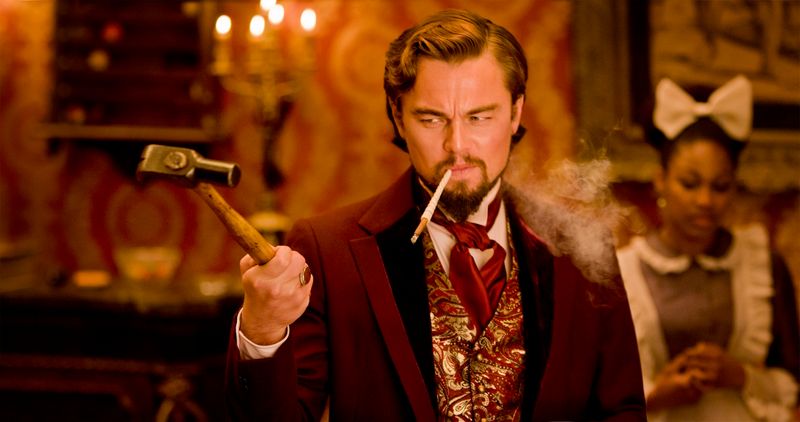
Leonardo DiCaprio has become one of Hollywood’s most respected actors over three decades. From teenage heartthrob to Oscar-winning legend, he’s delivered unforgettable performances in every genre imaginable.
Whether playing real-life icons or fictional characters, DiCaprio brings intensity, dedication, and remarkable range to every role he takes on.
1. The Revenant (2015) — Hugh Glass
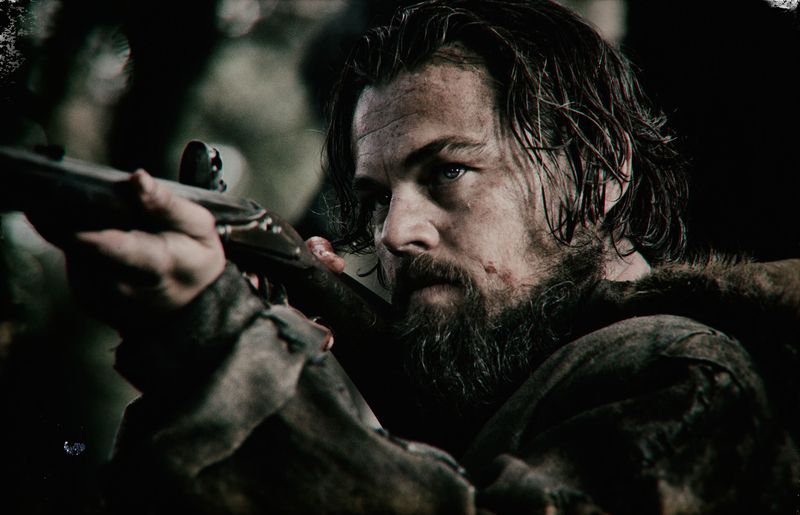
Surviving a bear attack, crawling through frozen wilderness, and eating raw bison liver on camera—DiCaprio went to extreme lengths for this role. His portrayal of frontiersman Hugh Glass pushed his body and mind to the absolute limit. Director Alejandro González Iñárritu filmed in brutal natural conditions, and DiCaprio embraced every freezing moment.
This wasn’t just acting; it was endurance. The physical transformation was staggering, with DiCaprio losing weight and subjecting himself to icy rivers and harsh elements. His commitment showed in every frame, making audiences feel every ounce of Glass’s pain and determination.
After five previous nominations, this performance finally earned him the Academy Award. The role required minimal dialogue, forcing DiCaprio to convey emotion through raw physicality and facial expressions. It remains his most grueling and transformative work to date, cementing his legacy as a fearless performer.
2. The Wolf of Wall Street (2013) — Jordan Belfort
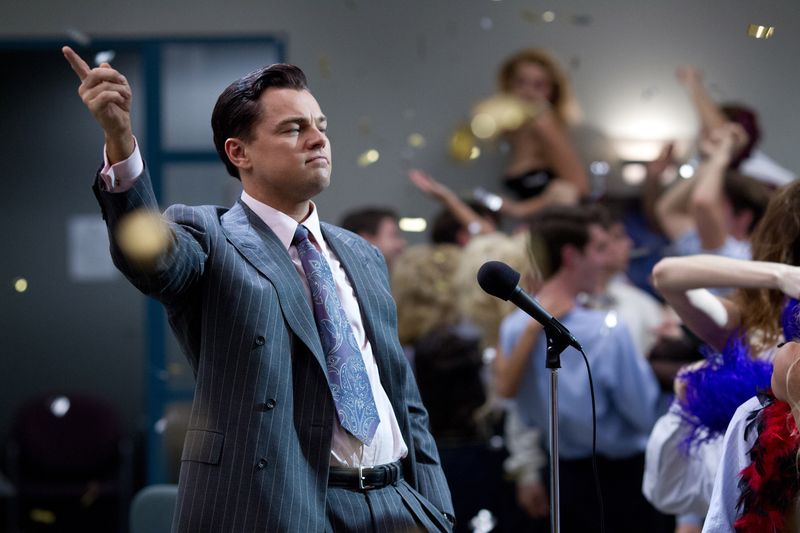
Energy explodes off the screen in every scene featuring Jordan Belfort. DiCaprio delivers a performance so electric and unhinged that it’s impossible to look away. From chest-thumping chants to Quaalude-fueled physical comedy, he commands attention with manic charisma and zero shame.
Martin Scorsese gave DiCaprio room to improvise and push boundaries, resulting in some of the most memorable movie moments of the 2010s. The famous “sell me this pen” scene and the country club meltdown showcase his comedic timing. His willingness to look ridiculous while maintaining Belfort’s dangerous charm is masterful.
This role proved DiCaprio could be hilariously funny while exploring moral bankruptcy. He makes you laugh at a character who probably belongs in prison. The three-hour runtime flies by thanks to his explosive performance, which earned him another Oscar nomination and reminded everyone why he’s one of cinema’s greatest.
3. The Departed (2006) — Billy Costigan
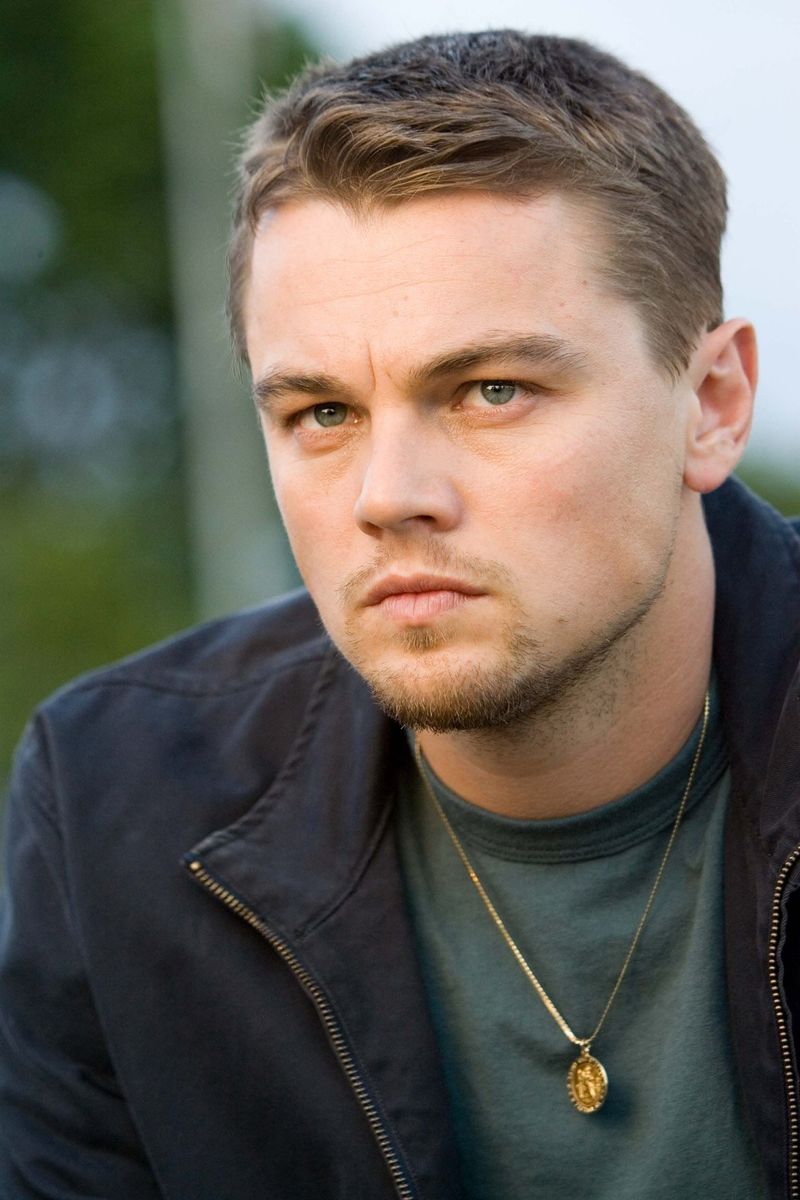
Anxiety drips from every pore as DiCaprio embodies an undercover cop trapped between two dangerous worlds. Billy Costigan lives in constant fear of exposure, and you feel that tension in every scene. His nervous energy and paranoid glances create a character perpetually on the edge of breakdown.
Working alongside Jack Nicholson and Matt Damon, DiCaprio holds his own in this powerhouse ensemble. The therapy sessions reveal Costigan’s unraveling psyche, while confrontations with Frank Costello showcase raw survival instinct. DiCaprio balances vulnerability with toughness, making Costigan both sympathetic and believable as a street-smart operative.
Scorsese’s Boston crime thriller demanded intensity that DiCaprio delivered in spades. His Boston accent sounds authentic, and his physical transformation into a rougher, scruffier character shows dedication. The rooftop scene with Damon crackles with tension, proving DiCaprio can anchor complex thrillers with emotional authenticity that keeps viewers invested until the shocking end.
4. Titanic (1997) — Jack Dawson

A charming drifter with a sketch pad changed cinema history forever. Jack Dawson became the romantic ideal for an entire generation, launching DiCaprio into superstardom virtually overnight. His boyish good looks combined with genuine warmth made audiences fall desperately in love with this too-good-to-be-true character.
James Cameron’s epic romance required chemistry with Kate Winslet that felt completely authentic. The “I’m flying” scene and the car sequence remain iconic partly because DiCaprio brought earnest sincerity. He made Jack feel real despite being almost impossibly perfect—kind, talented, adventurous, and selfless.
Twenty-five years later, people still debate whether Rose should have shared that door. That’s how memorable DiCaprio’s performance remains. He brought depth to what could have been a one-dimensional romantic lead, infusing Jack with working-class pride and artistic soul. This role made him a household name and proved he could carry a massive blockbuster.
5. Catch Me If You Can (2002) — Frank Abagnale Jr.
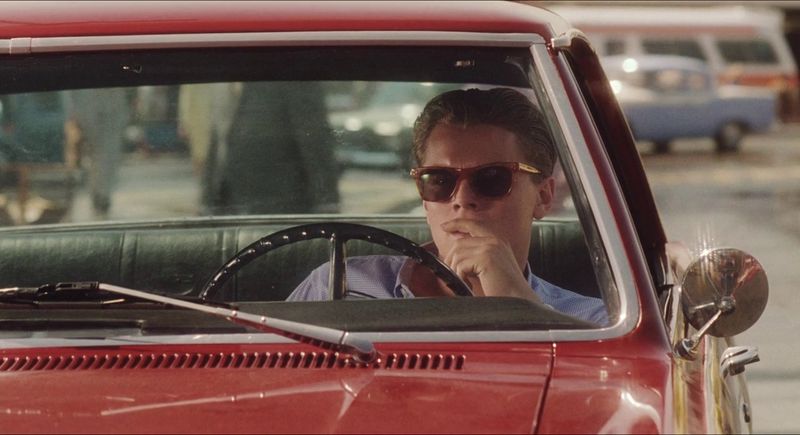
Charm oozes effortlessly from DiCaprio as he plays America’s most successful teenage con artist. Frank Abagnale Jr. impersonated pilots, doctors, and lawyers before his 19th birthday, and DiCaprio captures both the thrill and loneliness of that lifestyle. His smile hides deep sadness stemming from his broken family.
Steven Spielberg’s cat-and-mouse thriller gave DiCaprio a chance to showcase lighter talents. He’s funny, quick-witted, and impossibly smooth while forging checks and talking his way out of impossible situations. The scenes with Tom Hanks crackle with playful energy, creating an unlikely friendship between hunter and prey.
Beneath the slick surface lies a hurt kid desperate for his father’s approval. DiCaprio balances the cocky swagger with vulnerable moments that reveal Frank’s true motivation. The Christmas phone calls to Hanks’s character show touching loneliness. This performance demonstrated DiCaprio’s range beyond intense dramas, proving he could handle comedy and period pieces with equal skill.
6. Shutter Island (2010) — Teddy Daniels
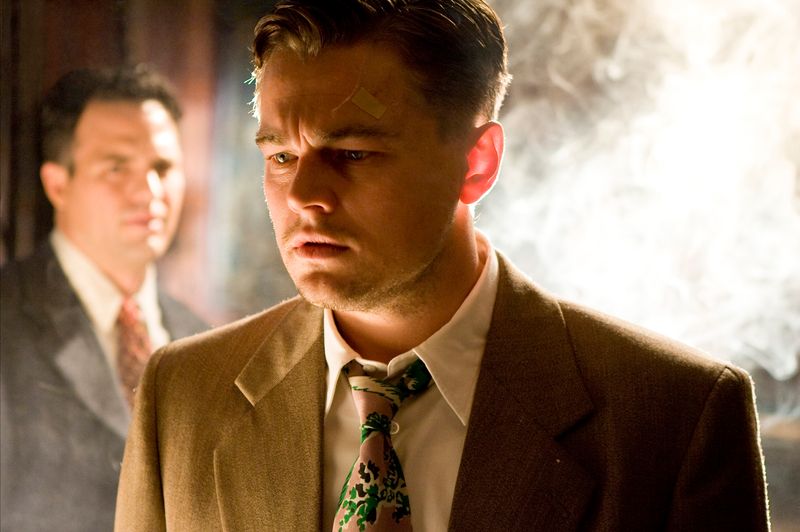
Paranoia and grief collide in this psychological thriller that rewards careful attention. Teddy Daniels arrives at Ashecliffe Hospital to investigate a disappearance, but nothing is quite what it seems. DiCaprio plays every layer of this complex character with precision, making the twist ending both shocking and inevitable upon rewatch.
Scorsese’s gothic mystery required DiCaprio to portray multiple psychological states simultaneously. He’s traumatized by war, haunted by his dead wife, and possibly losing his grip on reality. The migraine scenes and dream sequences showcase his ability to convey mental anguish without overacting.
What makes this performance special is how differently it plays after knowing the truth. DiCaprio plants subtle hints throughout while maintaining Teddy’s perspective as reliable. His final line—”Which would be worse: to live as a monster, or die as a good man?”—hits with devastating impact. This role demonstrated his skill at navigating unreliable narrator territory with haunting effectiveness.
7. The Aviator (2004) — Howard Hughes
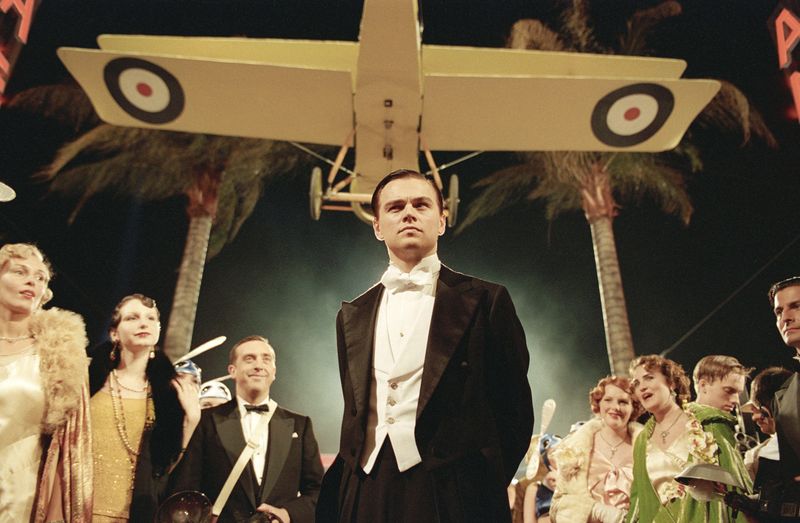
Obsession, genius, and mental illness intertwine in DiCaprio’s portrayal of the legendary billionaire. Howard Hughes lived large—breaking aviation records, dating starlets, and building movie empires—but his mind slowly betrayed him. DiCaprio captures both the charismatic visionary and the man paralyzed by contamination fears with equal conviction.
Scorsese’s biopic spans decades, requiring DiCaprio to age Hughes from confident young mogul to reclusive germaphobe. The “show me the blueprints” scene demonstrates Hughes’s brilliant mind, while the peas-sorting sequence reveals his deteriorating mental state. DiCaprio makes these transitions seamless and heartbreaking.
His commitment to portraying Obsessive-Compulsive Disorder authentically earned widespread praise. The bathroom scene where Hughes repeats “the way of the future” shows vulnerability rarely seen in biographical films.
DiCaprio doesn’t shy from Hughes’s uglier moments, creating a complex portrait of American ambition. This performance earned him another Oscar nomination and proved his ability to tackle challenging historical figures.
8. Once Upon a Time in Hollywood (2019) — Rick Dalton
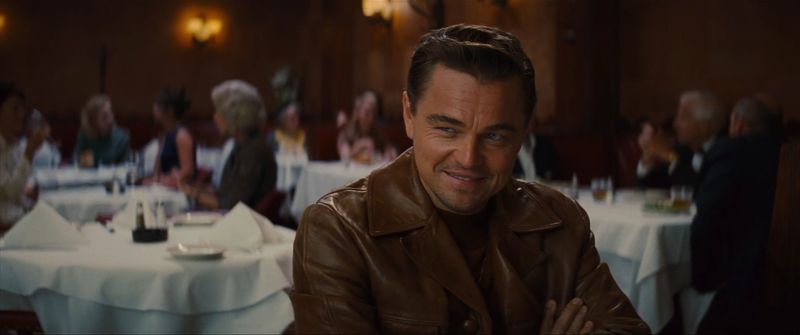
Insecurity eats away at fading TV star Rick Dalton, and DiCaprio plays every neurotic moment beautifully. Quentin Tarantino’s love letter to 1960s Hollywood gave DiCaprio his funniest, most vulnerable role in years. Rick’s on-set meltdown in his trailer—where he angrily berates himself—is both hilarious and painfully relatable.
The scenes where Rick films a Western pilot showcase DiCaprio’s range within a range. He’s playing an actor playing a villain, stumbling over lines before nailing an emotional moment. The little girl actress praising his performance brings Rick to tears, and DiCaprio makes that moment genuinely touching without sentimentality.
DiCaprio brings humanity to a character who could have been a punchline. Rick’s fear of irrelevance, his drinking problem, and his desperate need for validation feel authentic. His chemistry with Brad Pitt’s Cliff Booth creates a touching friendship.
The flamethrower finale is pure catharsis, giving Rick the heroic moment he’s been chasing. This performance reminded everyone that DiCaprio can be funny, sad, and completely human.
9. Inception (2010) — Dom Cobb
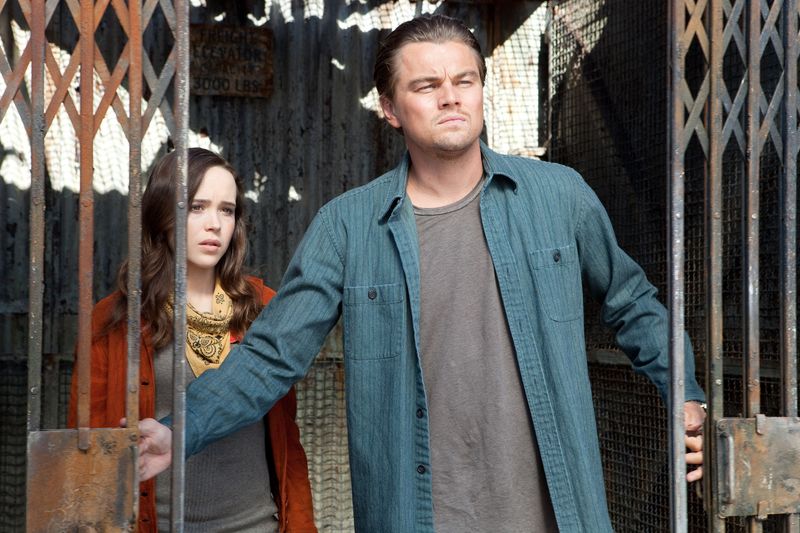
Guilt haunts every dream in Christopher Nolan’s mind-bending masterpiece. Dom Cobb can build entire worlds in his sleep, but he can’t escape the memory of his dead wife. DiCaprio grounds this high-concept thriller with genuine emotional pain, making the complex plot accessible through his character’s clear motivation—getting home to his children.
Nolan’s ambitious script required DiCaprio to navigate multiple reality layers while maintaining Cobb’s emotional journey. He’s the steady center around which spectacular action sequences revolve. The scenes with Marion Cotillard as Mal crackle with love and danger, showing a relationship that survived death but turned toxic.
DiCaprio’s restrained performance lets the spectacle shine while providing necessary heart. The spinning top ending works because we’ve invested in Cobb’s redemption. His face when he finally sees his kids again conveys relief and joy that feel earned.
This role proved DiCaprio could anchor massive blockbusters while delivering subtle, emotionally complex work that elevated the entire film beyond mere spectacle.
10. Gangs of New York (2002) — Amsterdam Vallon
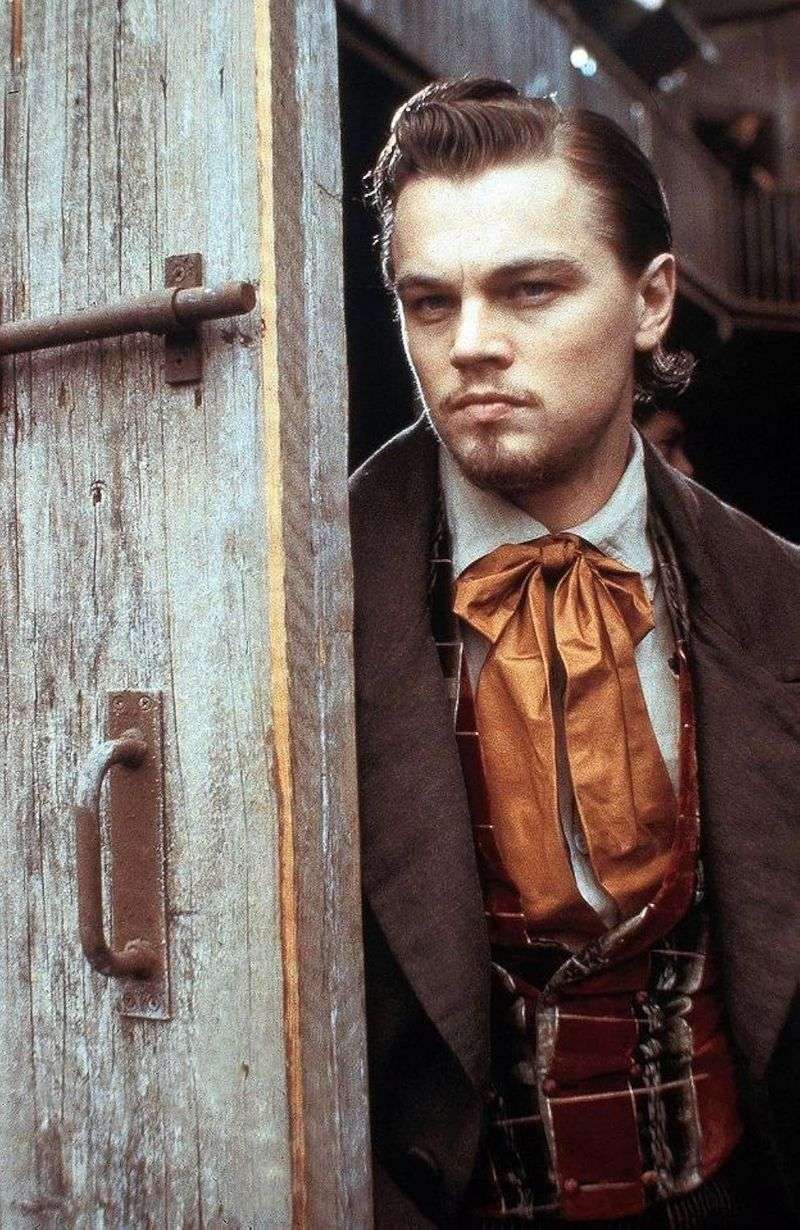
Revenge burns cold in Amsterdam Vallon’s heart as he infiltrates the gang that killed his father. DiCaprio holds his own opposite Daniel Day-Lewis’s scene-stealing Bill the Butcher, no small feat considering Day-Lewis’s legendary intensity. Amsterdam’s internal conflict—between vengeance and unexpected loyalty—drives Scorsese’s ambitious historical epic.
This role marked DiCaprio’s first collaboration with Scorsese, beginning one of cinema’s great director-actor partnerships. He brings working-class toughness to Amsterdam while showing the character’s strategic intelligence. The fight scenes required physical training that DiCaprio embraced, making the violence feel brutal and authentic.
Day-Lewis may dominate many scenes, but DiCaprio provides the emotional core that makes the story work. Amsterdam’s romance with Cameron Diaz’s Jenny adds softness to his hardened exterior.
The final confrontation between Amsterdam and Bill delivers catharsis that wouldn’t land without DiCaprio’s committed performance. This film proved he could handle period pieces and hold the screen against acting legends, setting the stage for future collaborations.
11. Blood Diamond (2006) — Danny Archer

A South African accent and moral complexity define DiCaprio’s portrayal of diamond smuggler Danny Archer. Set against Sierra Leone’s brutal civil war, this thriller gave DiCaprio a chance to play a morally gray character seeking redemption. His accent work impressed critics and audiences alike, sounding authentic throughout the film’s runtime.
Edward Zwick’s political thriller required DiCaprio to balance Archer’s cynical survivalism with emerging conscience. His chemistry with Djimon Hounsou creates the film’s emotional center, as two men from different worlds unite for a common goal. The action sequences showcase DiCaprio’s physicality, while quieter moments reveal Archer’s damaged soul.
Archer’s backstory—a child soldier turned mercenary—adds tragic depth that DiCaprio conveys through weary eyes and defensive humor. His dying scene on the mountain, watching the sunset while talking to Jennifer Connelly’s character, ranks among his most moving moments.
This performance earned another Oscar nomination and demonstrated his ability to disappear into characters far removed from his own experience.
12. Django Unchained (2012) — Calvin Candie
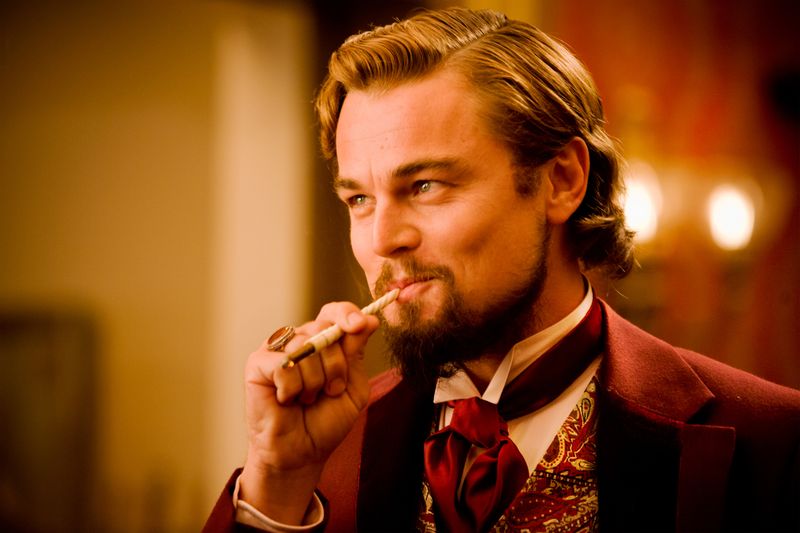
Evil drips like honey from Calvin Candie’s charming Southern drawl. Quentin Tarantino cast DiCaprio against type as a villainous plantation owner, and he seized the opportunity with relish. Candie is educated, sophisticated, and absolutely monstrous—a combination DiCaprio plays with chilling effectiveness.
The dinner table scene where Candie reveals his knowledge creates unbearable tension. DiCaprio famously cut his hand smashing a glass but continued the scene, smearing real blood on Kerry Washington’s face. That commitment to the moment typifies his approach to this challenging role. He makes Candie’s cruelty feel casual and deeply ingrained.
Playing a racist villain required DiCaprio to go darker than ever before. His French-speaking, phrenology-obsessed character represents the intellectual justification of slavery’s horrors. The “you had my curiosity, but now you have my attention” line became instantly quotable.
This performance proved DiCaprio could play pure evil convincingly, adding another dimension to his impressive range and showing fearlessness in role selection.
13. Revolutionary Road (2008) — Frank Wheeler
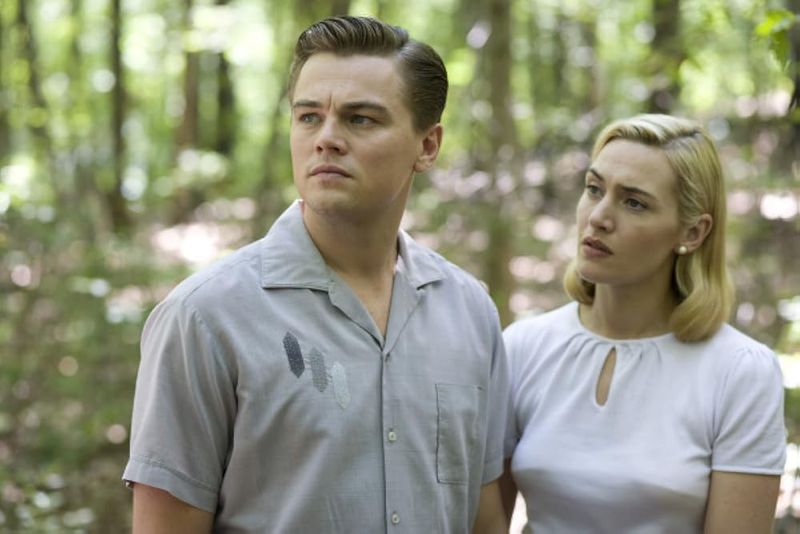
Suburban suffocation slowly destroys Frank Wheeler’s soul in this devastating domestic drama. Reuniting with Kate Winslet eleven years after Titanic, DiCaprio plays a man who settled for comfortable mediocrity instead of chasing dreams. Director Sam Mendes strips away any romance, showing marriage as a battlefield where love curdles into resentment.
Frank’s journey from hopeful idealist to defeated conformist requires subtle degradation that DiCaprio charts expertly. His affair represents desperate escape rather than passion. The kitchen fight scenes with Winslet crackle with authentic marital venom, both actors unafraid to make their characters ugly and cruel.
This performance showcases DiCaprio’s ability to play ordinary disappointment rather than extraordinary circumstances. Frank isn’t a hero or villain—just a man who gave up and now resents everyone, including himself.
The final scene, where Frank mechanically goes through motions after tragedy strikes, conveys emotional shutdown perfectly. This underrated gem proved DiCaprio could devastate audiences without physical extremes or historical significance, just raw human failure.
14. Romeo + Juliet (1996) — Romeo
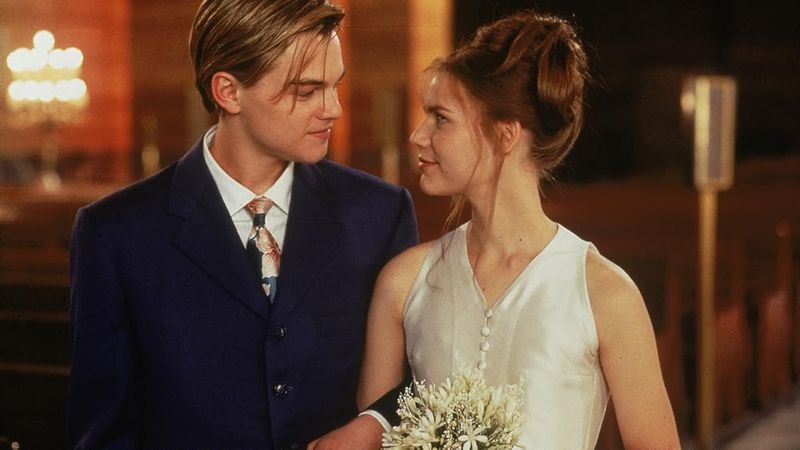
Baz Luhrmann’s bold modernization of Shakespeare transformed the Bard’s words into MTV-generation poetry. DiCaprio brought youthful intensity to Romeo, making Elizabethan dialogue feel urgent and contemporary. His chemistry with Claire Danes created one of the 1990s’ most iconic screen romances, introducing Shakespeare to teenagers who might never have picked up the play.
The balcony scene reimagined as a pool encounter showcases DiCaprio’s romantic leading man qualities. He speaks Shakespeare’s lines with genuine emotion rather than theatrical affectation. His Romeo feels impulsive, passionate, and dangerously romantic—exactly as the character should be played.
This role established DiCaprio as a heartthrob while proving he had serious acting chops. The death scene in the church, where Romeo doesn’t realize Juliet is waking, breaks hearts every time. His face conveys such desperate love that the tragedy feels fresh despite the story’s familiarity.
This performance launched his career into the stratosphere and remains beloved by fans who grew up watching it on repeat.
15. Don’t Look Up (2021) — Dr. Randall Mindy
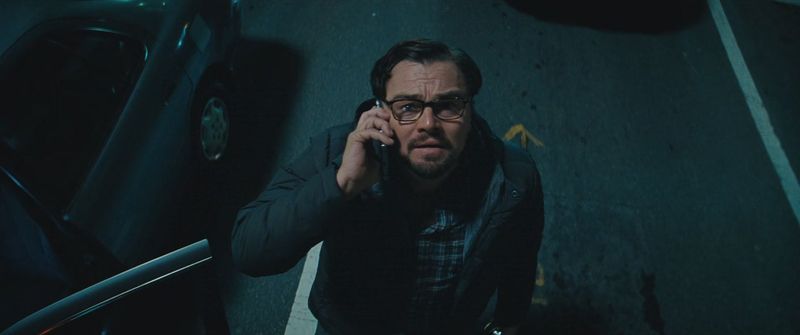
Anxiety attacks and awkward television appearances define Dr. Randall Mindy, a mild-mannered astronomer trying to save humanity. Adam McKay’s climate change allegory gave DiCaprio a rare comedic role as an overlooked scientist thrust into the spotlight. His panic attacks feel painfully real, capturing the frustration of experts ignored by politicians and media.
DiCaprio plays Mindy as the opposite of his usual confident characters. He’s nerdy, anxious, and completely out of his depth when dealing with celebrity culture. His affair with a TV host shows how easily principles crumble under pressure and attention. The transformation from meek professor to angry prophet provides a satisfying arc.
The film’s dark satire works partly because DiCaprio grounds it in genuine fear and frustration. His meltdown on live television—screaming at humanity’s willful ignorance—channels real-world climate anxiety.
This performance proved DiCaprio could handle ensemble comedy while making pointed commentary about issues he’s passionate about in real life. It’s a different kind of intensity than his dramatic work but equally effective.
16. The Basketball Diaries (1995) — Jim Carroll
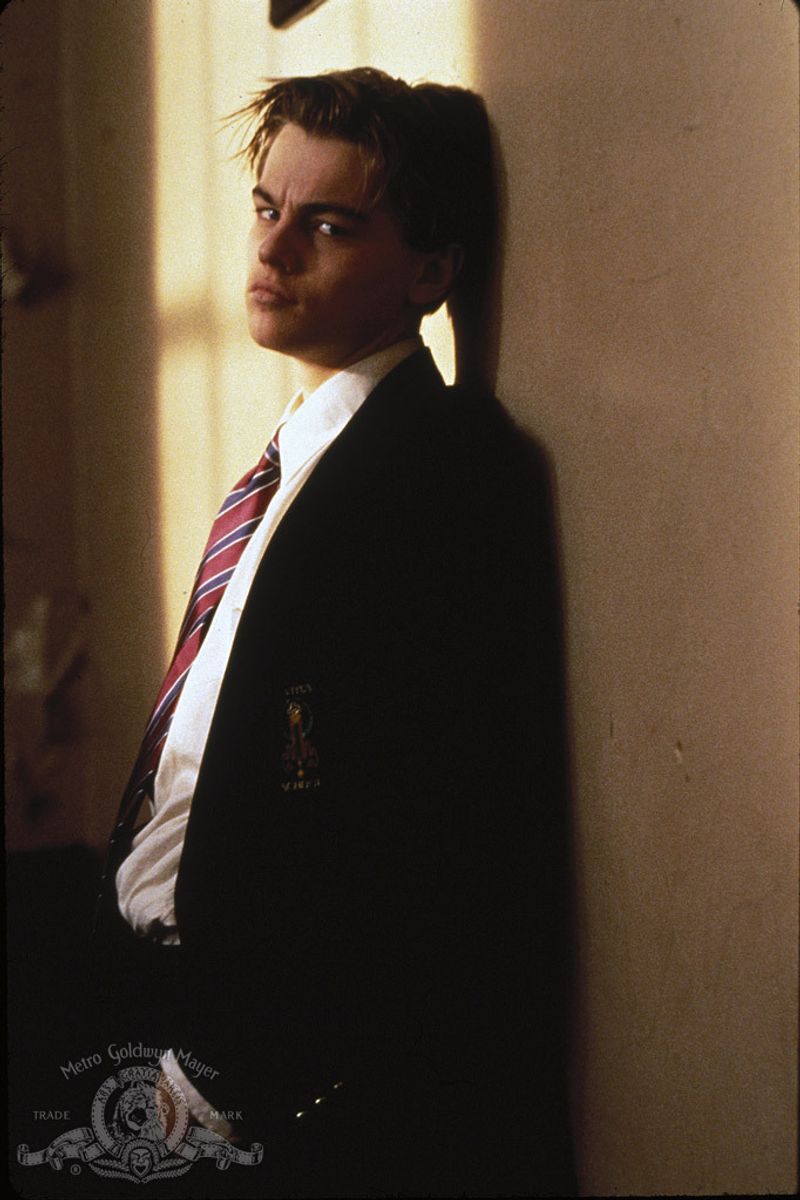
Heroin addiction destroys a promising basketball player in this harrowing adaptation of Jim Carroll’s memoir. DiCaprio was barely twenty when he portrayed Carroll’s descent into drugs and prostitution, delivering a performance far beyond his years. The infamous scene where he begs his mother for money through a locked door remains one of cinema’s most gut-wrenching depictions of addiction.
Scott Kalvert’s gritty drama required DiCaprio to portray physical and moral deterioration convincingly. He lost weight and fully committed to showing addiction’s ugliest aspects. His transformation from clean-cut athlete to hollow-eyed junkie happens gradually, making the decline feel terrifyingly real.
This early role proved DiCaprio was no ordinary teen actor coasting on good looks. He went to dark, uncomfortable places that established actors might avoid. The raw emotion and fearless physicality announced the arrival of a major talent willing to take risks.
While the film itself received mixed reviews, critics universally praised DiCaprio’s committed performance, recognizing that a star was being born before their eyes.
17. Marvin’s Room (1996) — Hank
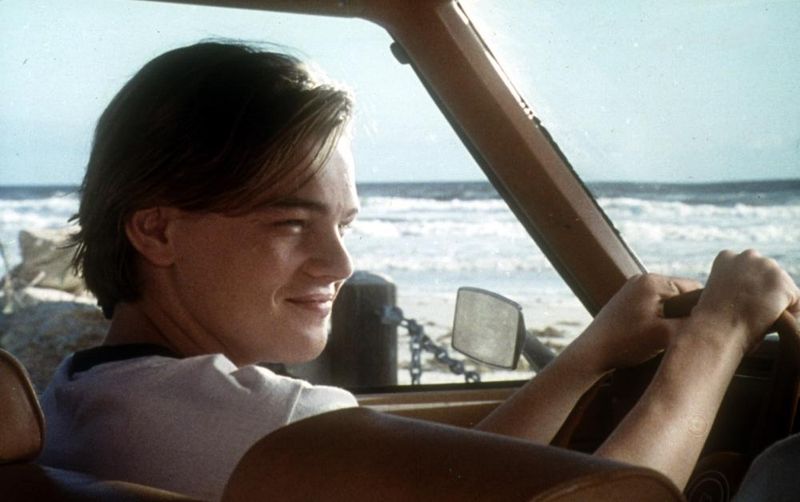
Troubled teenager Hank acts out in this understated family drama featuring powerhouse performances from Meryl Streep and Diane Keaton. DiCaprio plays the angry son of Streep’s character, a kid who’s burned down his house and carries rage like armor. In a film full of acting legends, he holds his own with surprising maturity.
Jerry Zaks’s adaptation of Scott McPherson’s play required DiCaprio to show vulnerability beneath Hank’s rebellious exterior. The scene where he finally breaks down and admits his pain showcases emotional range beyond his years. He makes Hank’s journey from hostile outsider to family member feel earned.
This smaller role between bigger projects demonstrated DiCaprio’s willingness to work in ensemble pieces and learn from established actors. Watching him share scenes with Streep and Keaton is like seeing a masterclass in subtle acting.
Hank could have been a one-note angry teen, but DiCaprio adds layers of hurt and confusion. This performance remains underrated in his filmography, showing early signs of the depth he’d bring to later roles.
18. The Great Gatsby (2013) — Jay Gatsby
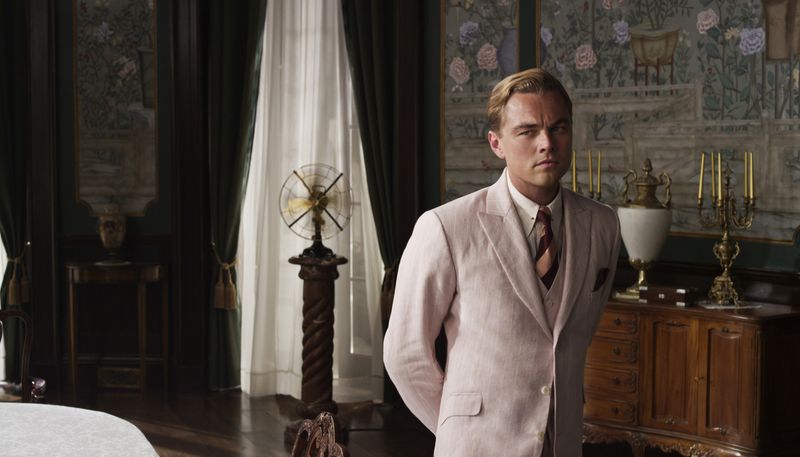
Mystery and longing define F. Scott Fitzgerald’s tragic romantic hero. Baz Luhrmann’s visually extravagant adaptation cast DiCaprio as the ultimate dreamer chasing an impossible past. His Gatsby radiates charm and wealth while hiding desperate insecurity—a man who built an empire to impress one woman who may never truly love him back.
The “old sport” catchphrase could have sounded ridiculous, but DiCaprio makes it endearing and slightly sad. His chemistry with Carey Mulligan’s Daisy captures both genuine love and toxic obsession. The reunion scene in Nick’s cottage shows Gatsby’s nervousness beneath the confident facade, revealing the vulnerable man behind the legend.
DiCaprio brings depth to a character that exists more as symbol than person in the novel. His Gatsby feels real—you understand why people are drawn to him and why his dream is doomed. The pool scene delivers the tragedy Fitzgerald intended.
While the film divided critics, DiCaprio’s performance earned praise for capturing Gatsby’s essential sadness, the hollowness of the American Dream personified.
19. Body of Lies (2008) — Roger Ferris

CIA operative Roger Ferris navigates Middle Eastern intelligence networks in Ridley Scott’s underrated thriller. DiCaprio brings grounded intensity to this espionage tale, playing a field agent caught between doing his job and maintaining his conscience. His chemistry with Russell Crowe’s manipulative superior creates the film’s central tension.
Scott’s political thriller required DiCaprio to handle action sequences and Arabic dialogue while conveying moral complexity. Ferris isn’t a superhero spy—he makes mistakes, gets hurt, and questions his mission. The torture scene where Ferris loses fingers demonstrates DiCaprio’s commitment to showing intelligence work’s brutal realities.
This performance gets overlooked in DiCaprio’s filmography, but it showcases his ability to anchor genre films with authentic emotion. His romance with an Iranian nurse adds humanity to the spy mechanics.
Ferris’s frustration with armchair strategists making life-and-death decisions from safety resonates powerfully. While the film didn’t achieve blockbuster status, DiCaprio’s work remains solid and professional, proving he can elevate material through sheer commitment and skill even in less-celebrated projects.
20. J. Edgar (2011) — J. Edgar Hoover
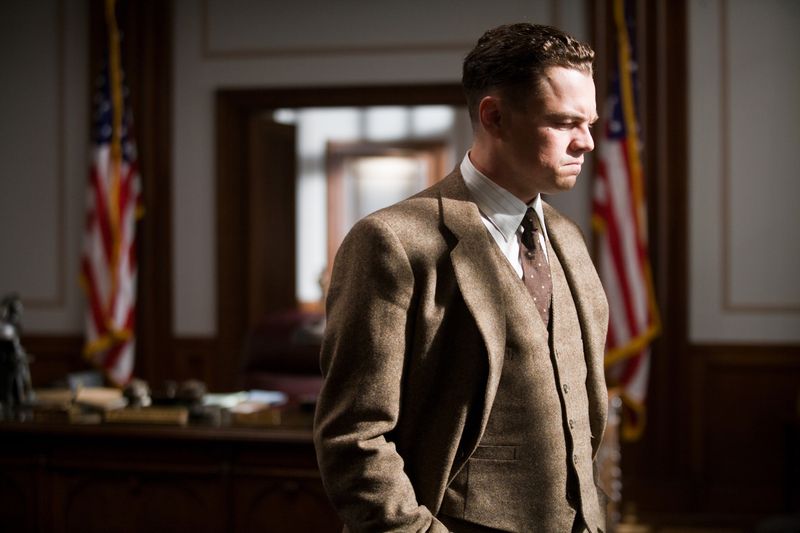
Power, paranoia, and repressed sexuality define Clint Eastwood’s portrait of America’s most controversial lawman. DiCaprio ages from young ambitious agent to elderly FBI director, spending hours in makeup to portray Hoover across five decades. The physical transformation is impressive, but the emotional complexity makes this performance memorable.
Eastwood’s biopic explores Hoover’s closeted homosexuality and his complicated relationship with Clyde Tolson. DiCaprio brings surprising tenderness to these scenes while maintaining Hoover’s public ruthlessness. The dress-wearing scene after his mother’s death shows vulnerability rarely associated with the historical figure.
Playing one character across such a long timespan presents unique challenges that DiCaprio navigates skillfully. Young Hoover’s ambitious energy gradually hardens into old Hoover’s bitter paranoia. The makeup occasionally distracts, but DiCaprio’s performance underneath remains committed.
He humanizes a deeply flawed figure without excusing Hoover’s abuses of power. This challenging role demonstrated DiCaprio’s willingness to tackle controversial historical figures and disappear beneath prosthetics to serve the story, even if the film itself received mixed critical reception.
21. The Man in the Iron Mask (1998) — King Louis XIV / Philippe
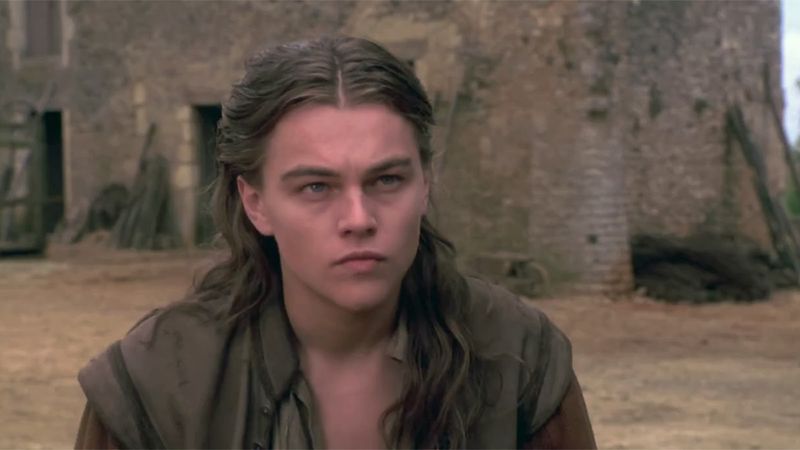
Dual roles allowed DiCaprio to showcase range in this swashbuckling adventure. Playing both the cruel King Louis XIV and his imprisoned twin brother Philippe, he creates distinct personalities through posture and expression. The tyrannical king and the gentle prisoner feel like completely different people, demonstrating early versatility.
Randall Wallace’s adaptation of Alexandre Dumas’s classic reunited the Three Musketeers for one last adventure. DiCaprio holds his own alongside veterans like Jeremy Irons, John Malkovich, and Gérard Depardieu. His scenes as Philippe discovering freedom showcase innocent wonder, while Louis radiates entitled arrogance.
The film isn’t among DiCaprio’s strongest work, hampered by uneven tone and pacing issues. However, his dual performance shows technical skill and commitment to differentiating characters who share a face.
The switching sequence demonstrates his ability to play both villain and hero convincingly. While this period adventure hasn’t aged as well as other entries in his filmography, it represents an interesting moment when DiCaprio experimented with genre films between more serious dramatic roles.
22. The Beach (2000) — Richard

Paradise turns into nightmare in Danny Boyle’s adaptation of Alex Garland’s novel. DiCaprio plays Richard, a backpacker seeking authentic experience who finds a secret island community. The role required him to transform from wide-eyed tourist to paranoid survivalist, showing the dark side of utopian fantasies.
Boyle’s thriller divided critics and audiences, with some finding it pretentious and others appreciating its ambition. DiCaprio’s performance carries the film through its uneven moments. His descent into madness—complete with hallucinated video game sequences—shows willingness to embrace weirdness. The shark attack scene demonstrates physical commitment to the role.
Coming right after Titanic, this film represented DiCaprio’s attempt to avoid typecasting as a romantic lead. While the movie itself remains flawed, his work shows an actor pushing boundaries and taking risks.
Richard’s moral compromises and psychological breakdown provide darker material than his previous roles. The Beach may not be a masterpiece, but DiCaprio’s intense performance proves he was serious about challenging himself rather than coasting on heartthrob status.
23. What’s Eating Gilbert Grape (1993) — Arnie Grape

Portraying a teenager with developmental disabilities earned DiCaprio his first Oscar nomination at age nineteen. Arnie Grape could have been a caricature in less skilled hands, but DiCaprio brings humanity and joy to the role. His physicality—the movements, expressions, and speech patterns—shows extensive research and remarkable empathy.
Lasse Hallström’s gentle drama features Johnny Depp as Gilbert, Arnie’s patient brother and caretaker. DiCaprio steals every scene he’s in without overwhelming the film’s delicate balance. His excitement about simple pleasures and terror during stressful moments feel completely authentic, never condescending or exploitative.
The water tower climbing scene showcases both Arnie’s innocence and the danger his condition creates for himself and his family. DiCaprio makes you love Arnie while understanding the burden he represents.
This astonishing early performance announced that DiCaprio possessed rare gifts—the ability to disappear into characters and find truth in challenging roles. Many actors twice his age couldn’t have pulled off such a sensitive, nuanced portrayal. It remains one of his most impressive achievements.
24. Total Eclipse (1995) — Arthur Rimbaud
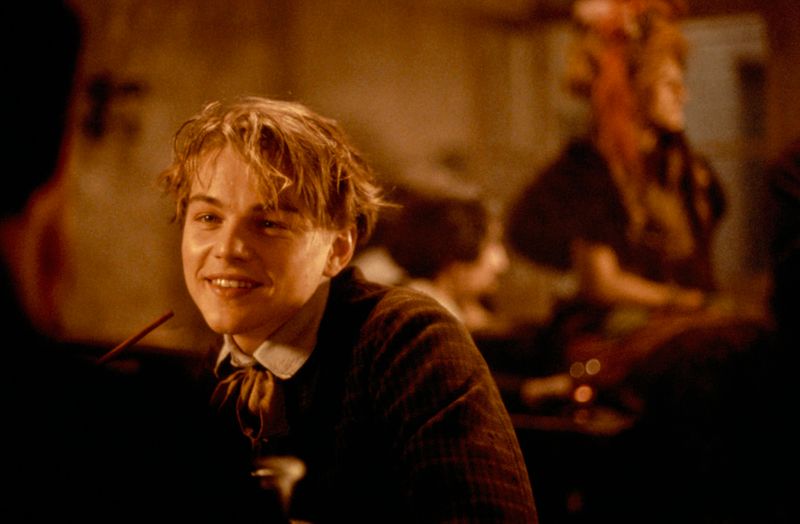
French poet Arthur Rimbaud lived fast, wrote brilliant verses, and quit literature at age twenty. Agnieszka Holland’s biographical drama cast DiCaprio as the rebellious genius who had a volatile affair with fellow poet Paul Verlaine. This fearless performance pushed boundaries and took risks that few young actors would attempt.
The film explores Rimbaud’s sexuality explicitly, featuring scenes that required DiCaprio to go places most Hollywood actors avoid. His Rimbaud is arrogant, cruel, brilliant, and utterly compelling—a young man who burned too bright to last. The chemistry with David Thewlis creates a toxic relationship that feels painfully real.
Total Eclipse received mixed reviews and limited release, but DiCaprio’s commitment deserves recognition. He captures Rimbaud’s artistic arrogance and self-destructive tendencies without making him likable or redeemable. The absinthe-fueled scenes showcase physical abandon.
This bold choice early in his career proved DiCaprio cared more about challenging roles than safe career moves. While not widely seen, this performance demonstrates the fearlessness that would define his approach to acting throughout his career, never shying from controversial or difficult material.
25. One Battle After Another (2025) — Ghetto Pat Calhoun / Bob Ferguson
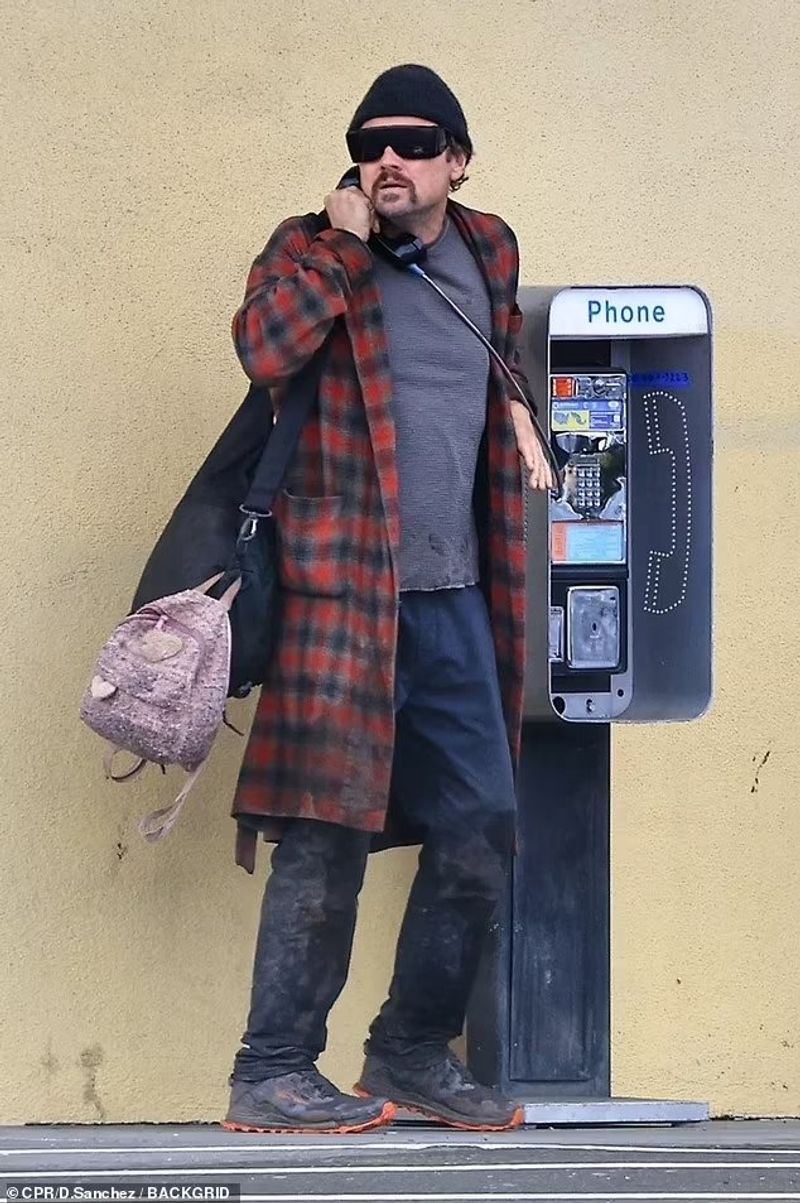
Audiences were immediately struck by how DiCaprio grounds this chaotic, war-torn story in pure human vulnerability. Instead of relying on spectacle, he leans into emotional nuance—every hesitation, every flicker of fear, every burst of determination plays across his expression with magnetic clarity.
The result is a performance that feels brutally honest and surprisingly intimate, even amid explosions and turmoil.
What really stands out is the physical commitment. DiCaprio throws himself into the role with the kind of intensity that made The Revenant unforgettable, but here it’s channeled through strategy, grit, and moral conflict rather than survival instinct. You can practically feel the exhaustion in his bones as he navigates impossible decisions.
The character’s arc becomes even more compelling as DiCaprio slowly peels back layers of doubt, hope, and duty. It’s a portrayal that mixes heroism with humanity, reminding viewers that the most memorable battles are often the internal ones. This is DiCaprio at his best—raw, layered, and impossible to look away from.

Comments
Loading…